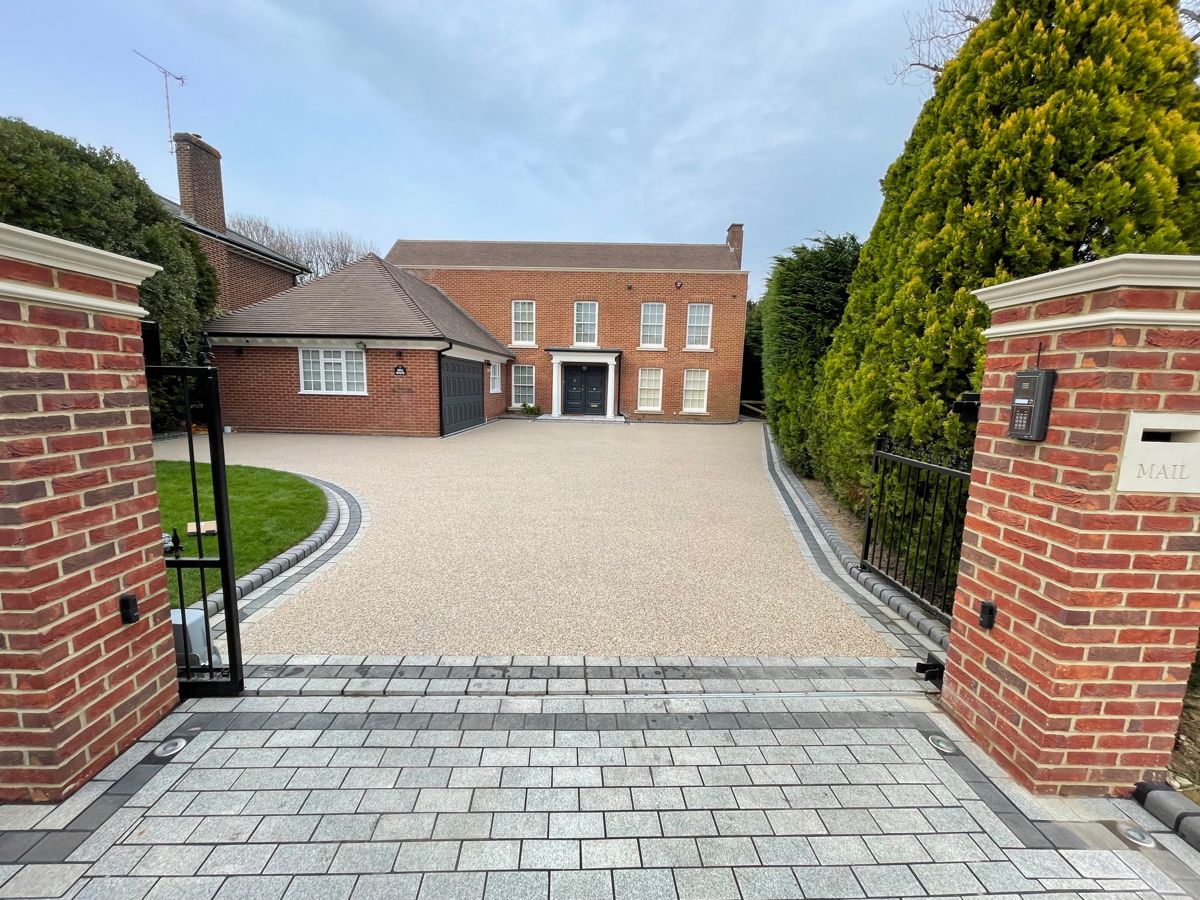If you’re planning a new driveway, you’ve probably come across resin bound driveways—one of the fastest-growing choices for UK homeowners. Known for their sleek finish, durability, and low maintenance, resin driveways are a stylish alternative to traditional surfaces like tarmac, gravel, or block paving. With excellent drainage, a wide range of colours, and long-lasting performance, it’s easy to see why so many people are choosing resin driveway installation for their homes.
A resin bound driveway is made by mixing natural stone aggregates with a clear resin and laying it over a prepared base. The result is a smooth, seamless surface that’s strong, permeable, and resistant to weeds. This differs from resin bonded driveways, where resin is spread on the surface and stones are scattered on top creating a rougher, less durable finish.
The benefits of resin bound driveways go beyond good looks. They’re available in a wide variety of colours, allowing you to customise your driveway with decorative borders, contrasting edges, or even bespoke designs. They’re also incredibly low-maintenance unlike block paving, resin doesn’t allow weeds to grow through, and cleaning usually involves nothing more than sweeping or an occasional jet wash. Another big advantage is eco-friendliness. Resin driveways are SUDS compliant (Sustainable Urban Drainage Systems), which means they allow rainwater to soak through naturally, reducing puddles and helping to prevent flooding. With proper installation, resin driveways can last 15–20 years, making them a reliable, long-term investment.
Of course, there are a few drawbacks. The upfront cost of resin driveways is higher than options like gravel or tarmac, and installation quality makes a big difference. Poorly installed resin driveways can crack, fade, or suffer drainage problems, which is why it’s essential to choose experienced resin driveway contractors.
The installation process is relatively quick compared to other driveway materials. It usually involves clearing and preparing the site, laying a strong permeable sub-base such as tarmac or concrete, mixing the resin with aggregates, and spreading it evenly across the driveway. The surface cures in a matter of hours and is typically ready for use within 24 hours.
Design flexibility is another reason homeowners love resin driveways. A modern minimalist look can be achieved with sleek grey, black, or white resin finishes, while decorative stone edging or block borders add contrast and character. For those who want something truly unique, resin driveways with integrated LED lighting provide a stylish and practical feature at night.
Compared with block paving driveways, resin has some clear advantages. While both are durable, block paving requires more maintenance sealing, weed removal, and occasional repairs, whereas resin surfaces stay neat with minimal effort. Block paving does, however, offer more traditional design patterns, making it better suited to period properties.
To keep a resin bound driveway in top condition, maintenance is straightforward: sweep away leaves and debris, jet wash occasionally, and deal with any oil stains quickly to avoid discolouration. Avoid using harsh chemicals, as mild cleaning products are all that’s needed to keep the surface looking fresh.
So, is a resin bound driveway right for you? If you want a modern, durable, and low-maintenance driveway solution, resin is an excellent choice. It combines strength and style with eco-friendly drainage and a wide range of design options. While the upfront cost may be higher, the long lifespan and low maintenance make it a smart investment for UK homeowners. By choosing skilled resin driveway
